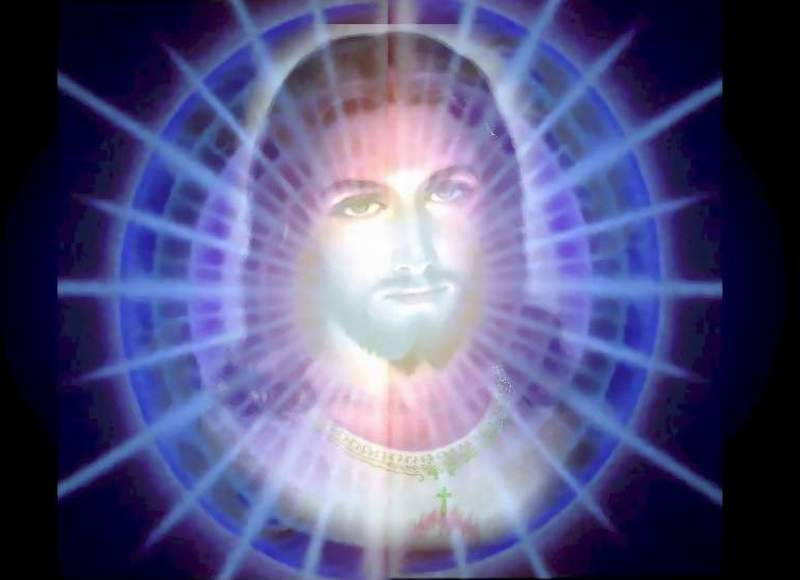The Power of Love
![]()
|
|
| |
Back to Index Page |
The Power of Love
Living in a Nazi Concentration Camp
By Dr. George G. Ritchie
Known as "The Message of Christ", this article was taken from the book ‘Return from Tomorrow’ by George G. Ritchie, http://www.near-death.com/ritch.html Sent on the Web by Dr. Victorio Berelli : victorio@bigfoot.com. Write to Dr. Berelli to add you to his email list if you want to receive more messages like this one.
It is a true story of events in Dr. Ritchie’s life while in the army during WWII, as recounted by himself:
![]()
| Loving every person…This was the power that had kept a man well in the face of every privation.
|
I was part of a group assigned to a concentration camp near Wuppertal, charged with getting medical help to the newly liberated prisoners, many of them Jews from Holland, France, and Eastern Europe. This was the most shattering experience I had yet had; I had been exposed many times by then to sudden death and injury, but to see the effects of slow starvation, to walk through those barracks where thousands of men had died a little bit at a time over a period of years, was a new kind of horror. For many it was an irreversible process: we lost scores each day in spite of all the medicine and food we could rush to them.
Now I needed my new insight indeed. When the ugliness became too great to handle I did what I had learned to do. I went from one end to the other of that barbed wire enclosure looking into men’s faces until I saw looking back at me the face of Christ.
And that’s how I came to know Wild Bill Cody. That wasn’t his real name. His real name was seven unpronounceable syllables in Polish, but he had long drooping handlebar mustaches like pictures of the old western hero, so the American soldiers called him Wild Bill. He was one the inmates of the concentration camp, but obviously he hadn’t been there long: his posture was erect, his eyes bright, his energy indefatigable. Since he was fluent in English, French, German, and Russian, as well as Polish, he became a kind of unofficial camp translator.
We came to him with all sorts of problems; the paper work alone was staggering in attempting to relocate people whose families, even whole hometowns, might have disappeared. But though Wild Bill worked fifteen and sixteen hours a day, he showed no signs of weariness. While the rest of us were drooping with fatigue, he seemed to gain strength. "We have time for this old fellow," he’d say. "He’s been waiting to see us all day." His compassion for his fellow-prisoners glowed on his face, and it was to this glow that I came when my own spirits were low.
So I was astonished to learn when Wild Bill’s own papers came before us one day, that he had been in Wuppertal since 1939! For six years he had lived on the same starvation diet, slept in the same airless and disease-ridden barracks as everyone else, but without the least physical or mental deterioration.
Perhaps even more amazing, every group in the camp looked on him as a friend. He was the one to whom quarrels between inmates were brought for arbitration. Only after I’d been at Wuppertal a number of weeks did I realize what a rarity this was in a compound where the different nationalities of prisoners hated each other almost as much as they did the Germans.
|
|
As for Germans, feeling against them ran so high that in some of the camps liberated earlier, former prisoners had seized guns, run into the nearest village and simply shot the first Germans they saw. Part of our instructions were to prevent this kind of thing and again Wild Bill Was our greatest asset, reasoning with the different groups, counseling forgiveness.
"It’s not easy for some of them to forgive," I commented to him one day as we sat over mugs of tea in the processing center. "So many of them have lost members of their families."
Wild Bill leaned back in the upright chair and sipped at his drink. "We lived in the Jewish section of Warsaw," he began slowly, the first words I had heard him speak about himself, "my wife, our two daughters, and our three little boys. When the Germans reached our street they lined everyone against a wall and opened up with machine guns. I begged to be allowed to die with my family, but because I spoke German they put me in a work group."
He paused, perhaps seeing again his wife and five children. "I had to decide right then," he continued, "whether to let myself hate the soldiers who had done this. It was an easy decision, really. I was a lawyer. In my practice I had seen too often what hate could do to people’s minds and bodies. Hate had just killed the six people who mattered most to me in the world. I decided then that I would spend the rest of my life…whether it was a few days or many years…loving every person I came in contact with."
Loving every person…This was the power that had kept a man well in the face of every privation. It was the Power I had first met in a hospital room in Texas, and was learning little by little to recognize wherever He chose to shine through…whether the human vehicle was aware of Him or not.
![]()



Leave a Reply